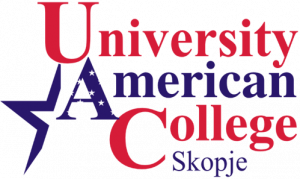SCHOOL OF POLITICAL SCIENCE
Undergraduate Programs
WHO WE ARE
The School of Political Science offers a rich academic curriculum that exposes our students to the cutting-edge knowledge in the field of political science, international communication and economic diplomacy. It provides students with a unique opportunity to explore and understand politics both as a science and a profession. The courses are designed to enable theoretical insight and ability to analyze politics at local, national and international level. By drawing on the rich professional and extensive academic achievements of our faculty, students gain practical skills and expand their decision making capacities.
WHAT WE STAND FOR
We create professionals who are capable of dealing with modern-day challenges in the areas of international relations and economic diplomacy. Our courses are carefully designed to tackle some of the most important political issues of today. We offer an exceptional mix of the best practices of European and American educational systems and we involve our students in international research projects and activities. Our students benefit from the opportunity to take part in the Erasmus+ Mobility program and spend a study semester at one of our partner universities in Europe.
OUR FACULTY
The School of Political Science champions a well-balanced combination of theoretical and practical knowledge delivered interactively by professors, experts and career diplomats. It creates a vivid environment for continuous learning and interchange. Our faculty members have excelled as reputable scholars, and some have served as ambassadors and high state officials.
OUR TEACHING PHILOSOPHY
Our aim is not to teach theory and facts only, but above all to enable the students to apply their knowledge and to gain practical skills. Along with lectures, we use advanced teaching tools, such as: case studies; role plays; simulation exercises; solving practical problems; group discussions with special guests; and individual and team projects (research papers, policy analyses, diplomatic cables). Small class size enables every student to actively participate in the learning process. Each academic year our students do internships in some of the 150+ institutions, organizations and companies which are part of the UACS Business Council. We are proud that our students gain knowledge and skills that enable them to take desired jobs immediately after graduation.
UACS BUSINESS COUNCIL
The cooperation with the UACS Business Council is a key factor in developing highly professional staff for the real world. The UACS Business Council is comprised of 150 leading companies from various professional backgrounds, as well as government institutions and non-government organizations. Along with providing adjustments to the curricula to meet contemporary needs, the UACS Business Council offers opportunities for career development of UACS students.
GIVING BACK TO COMMUNITY
Our programs also nurture social responsibility in students, inviting them to respect the community they live in by being responsible members of society. This is why UACS organizes a range of socially responsible events and projects in which students are actively involved.
OUR ACADEMIC PROGRAMS
The School of Political Science offers ambitious and innovative study programs, which aim to prepare the students for building a successful career in the fields of:
- Political Science and International Communication
- International Relations and Diplomacy
- Economic Diplomacy
EXPECTED LEARNING OUTCOMES UPON GRADUATION
- Knowledge and understanding of politics, international communication, and the role of modern diplomacy in the globalized world;
- Ability to independently analyze the political and economic institutions and the processes which define the international system;
- Ability to apply diplomatic techniques and methods to achieve foreign policy objectives;
- Ability to assess and predict the developments within the international system and their effects on the foreign policy of the state;
- Communication skills to publicly express views and knowledge on policy issues, and to participate actively in building the public diplomacy of the state.
- Ability to identify the needs for continuous learning by using electronic databases, scientific works, open- access publications and internal reports on policy issues and the diplomatic practice.
EMPLOYMENT POSSIBILITIES
Graduates of the School of Political Science can experience employment opportunities at a wide spectrum of:
- State and local institutions, government agencies and public bodies in the areas of international relations, applied politics and diplomacy, including the Ministries of Foreign Affairs, Internal Affairs, European Affairs, Defense, as well as intelligence agencies and international cooperation bodies.
- International governmental organizations and foreign diplomatic missions, including the OSCE, UNHCR, IOM, and foreign embassies.
- Non-governmental organizations, think-tank and advocacy institutions in different fields seeking trained policy analysts, consultants, political correspondents, lobbyists, organizers and policy advisors.
TITLE AND DEGREE EARNED UPON GRADUATION
Upon completion of the three-year undergraduate study program (180 ECTS credits), the students earn the degree of:
- Bachelor of Arts in Political Science – concentration in Political Science and International Communication
- Bachelor of Arts in Political Science – concentration in Economic Diplomacy

University American College Skopje
info@uacs.edu.mk
+389 2 246 3156
Boulevard III Makedonska Brigada 60, 1000 Skopje
